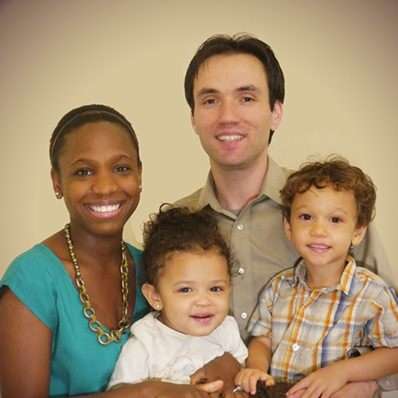Could Robert Sarvis Open the Door for Virginia Libertarians?
The state seems ready for progressive social values melded with a dose of badly needed economic realism.

Robert C. Sarvis, the Libertarian Party's nominee for Virginia governor, had to submit 10,000 valid signatures just to get his name on next month's ballot. But if Sarvis manages to win at least 10% of the general election vote—a strong possibility given recent polls show him drawing as high as 12%—then the Virginia LP would gain official status under state law. That means that for at least the next four years, the LP could nominate candidates in any partisan election without having to submit petition signatures. And while we're unlikely to see a Libertarian win statewide office in 2017, the prospect of LP candidates running at the legislative and municipal levels might introduce some badly needed competition into Virginia's lethargic political duopoly.
Sarvis identified the problem in an interview earlier this month with Reason's Brian Doherty. He said he first ran for the Virginia House of Delegates as a Republican in 2011 after noting many seats went to incumbents uncontested. In fact, nearly half of the House seats up for grabs this year—45 out of 100—have only one candidate on the ballot. And in the Virginia Senate, which is equally split between Democrats and Republicans, 14 of the 40 seats went uncontested in the 2011 election.
If Libertarian Party candidates win just a couple of Senate seats in 2015, they would hold the balance of power in the upper house. And with official status, the LP could field a lot more than the six candidates that managed to qualify via petitions for this year's House elections. Given that one of the two major parties failed to produce any candidate at all in half of the races this time around, voters should be receptive to a third-party—or in many cases, a second-party—alternative two years from now.
Fighting One-Party Machines
Virginia's lack of political competition is even more disturbing when you get down to the city and county level. For instance, in Charlottesville, home of Thomas Jefferson's University of Virginia, Democrats have ruled for decades without opposition. In addition to all five at-large city council seats, Democrats hold the elected constitutional offices of Treasurer, Sheriff, Commonwealth's Attorney, Commissioner of Revenue, and Clerk of the Courts. Three of these offices are up for election this year, but only the commissioner of revenue's race—where the Democratic incumbent announced his retirement—attracted more than one candidate. No Republican has won citywide office since 2002, and this year is the first time in nearly a decade the local GOP has bothered to field more than one candidate for city council.
Like all monopolies, Charlottesville Democrats rely on numerous barriers to entry. City leaders have long resisted switching to nonpartisan elections—the practice in many Virginia cities—or adopting a ward-based system for city council seats. The latter reform would help decentralize political power and afford residents of the city's poorer (and mostly African-American) neighborhoods a greater voice in city decision-making. But local Democrats are unwilling to yield any control over a process that has served their real constituents—city employees, their families and politically connected businesses—so well for decades. As a recent report by the Free Enterprise Forum, a local public policy group, noted, Charlottesville has the second-highest per capita spending on government operations among Virginia's independent cities, and indeed among all 134 city and county governments.
Opposing the well-oiled Charlottesville Democratic machine requires an equally sophisticated political operation. And that's unlikely to be the Republicans. The party's brand is simply too damaged to compete in a socially liberal city like Charlottesville. Between the national Republicans' national security policies (ignoring the fact these are also Barack Obama's policies) and the social conservatism of the state party exemplified by gubernatorial nominee Kenneth T. Cuccinelli, local voters are unlikely to consistently embrace candidates sporting the GOP label. That creates an opening for Libertarians who can meld progressive social values with a dose of badly needed economic realism.
Establishing a Libertarian Center
One explanation for Sarvis' stronger-than-expected poll numbers is the emerging realization by voters that Cuccinelli and Democratic nominee Terry McAuliffe have no genuine interest in tackling the growing problems created by state government. McAuliffe, a longtime Democratic fundraiser who has never held elected office, is the personification of crony capitalism, a logical successor to scandal-plagued Republican Gov. Robert McDonnell. For his part, Cuccinelli appears to be running for leader of the Tea Party movement with Virginia as a secondary concern. (He recently campaigned near Charlottesville with another conservative celebrity, South Carolina Gov. Nikki Haley.)
Sarvis, in contrast, has presented himself as a centrist—his slogan is "Open-minded & Open for Business"—in touch with Virginia's voters and their problems. And he's received respectful press coverage in return. Even the famously libertarian-phobic Washington Post featured an almost gushing profile of Sarvis recently, with writer Jennifer Rubin concluding, "His goals are, frankly, not that revolutionary."
Some small-l libertarians may balk at the apparent lack of ideological fire in Sarvis' campaign. There has been grumbling over Sarvis' comments to Reason criticizing Austrian economics, for example. But it's important to distinguish the Libertarian Party from the larger libertarian movement. The function of a political party is to win elections. Sarvis isn't running for president of the Mises Institute. If his campaign opens the door for other libertarians to compete—and yes, win—local elections in the future, then his efforts here will not have been in vain.


Show Comments (251)